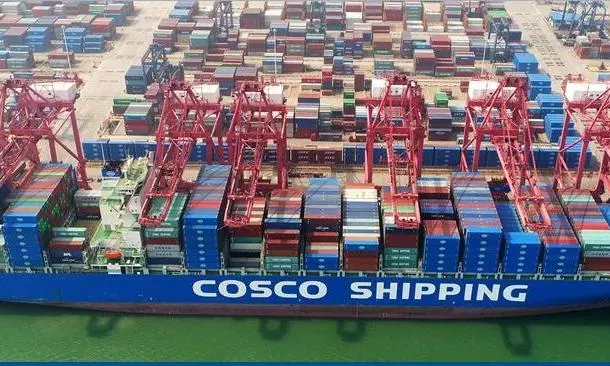Carriers deny deal with Houthis, some respite in Red Sea
COSCO stops calling at Israeli ports, disquiet continues as carriers keep hiking rates

With as many as 25 attacks in the Red Sea on container shipping lines, there are reports that carriers have reached out to Yemen-based Houthis for safe passage, Shipping Watch reported.
"A number of sources in the Middle East with in-depth knowledge of the process confirm to Shipping Watch that meetings have taken place in the region to ensure that the rebel movement allows ships from specific carriers to pass through the waters unharmed."
The demand from the Houthis is that the shipping lines, in return, must guarantee that they will not carry Israeli cargo or dock in Israeli ports, the report added.
COSCO stops Israel calls
Chinese carrier COSCO has decided not to call any Israeli port, according to Israeli business daily Globes.
"Chinese state-owned shipping giant COSCO Shipping has stopped visiting Israeli ports, Globes has learned. The company, the fourth largest container shipping line in the world, with about 11 percent of world trade, decided on this step even though it is not much threatened in the Red Sea because of the very fact that it is Chinese, and because of China’s ties with Iran, the patron of the Houthi rebels in Yemen."
COSCO’s decision is significant because it cooperates with Israeli shipping line ZIM, which will have to operate more ships on the Far East routes, which will lead to higher shipping costs since ZIM will be short of ships, the report added.
Rates continue to zoom
The vessel re-routes around the Cape of Good Hope bring extended transit times, tighter capacity constraints and increased operational costs, further driving up rates for ex-Asian cargo into the Americas, says the latest update from S&P Platts.
"Platts Container Rate 5, following ex-Asian imports to East Coast North America, increased $700, or more than 18 percent, to $4,500/FEU on January 5, bringing the rate to the highest level since November 7, 2022."
Platts assessed rates for import freight into West Coast North America from North Asia was up $200 to $3,000/FEU -- the highest level since September 20, 2022, the update added.
"As of January 5, priority booking carrier offers for January 15 were cited as high as the $12,000-$15,000/FEU range for shipments from Asia into North America. On the spot market, the same carrier cited $7,900/FEU into the East Coast and $5,800/FEU into the West Coast for mid-month validity. Sources remained sceptical that the market will fully accept the elevated rates but most market participants expect further rate increases on the horizon."
Carriers continue to announce rate increases, writes Lars Jensen in his LinkedIn post. "For example, MSC announced a new FAK rate from Asia to Med at 7100-7300 USD/FFE valid from 15 Jan.
"For comparison, the FAK rate from 1 Jan was announced on 11 Dec and was at 2900-3200 USD/FFE. The spot rate reported by Drewry’s WCI index last week was just short of 4200 USD/FFE."
DHL, in its Ocean Freight Market Outlook 2024, says: "The rerouting significantly increases transit times between Asia and Europe by 10-15 days and absorbs capacity. It needs to be seen if carriers will deploy additional tonnage to compensate for longer tips or if they skip some sailings. Affected are services in and out of Europe and the Middle East and into Africa if Mediterranean ports are used as transshipment points.
"Sailings from Asia to the East Coast of the Americas may also be impacted as shipping lines have started to divert vessels to avoid congestion in the Panama Canal due to vessel transit limitations resulting from low water levels. We expect this situation to have ripple effects to all global shipping routes as capacity is redeployed and equipment shortages starts to happen due to the delays. Only a few days into the situation we are seeing significant cost increases being passed on by carriers."
DHL is asking customers to "forecast accurately, Allow for sufficient lead times in case of disruptions and foster long-term partnerships with your provider of choice."



